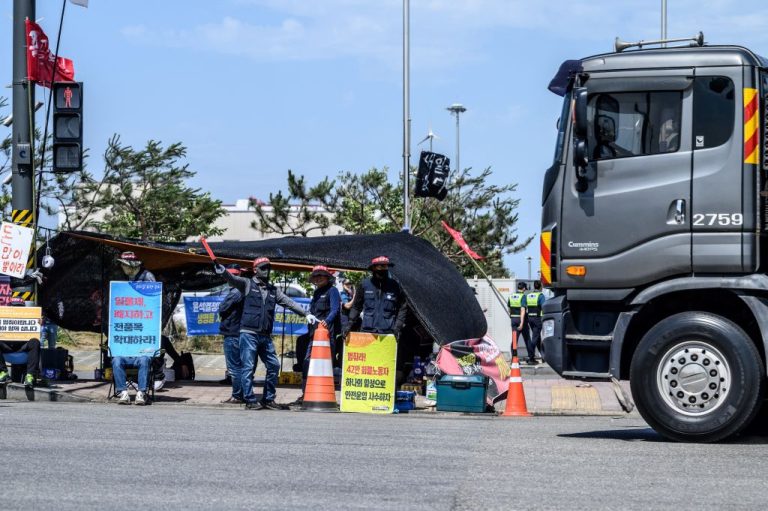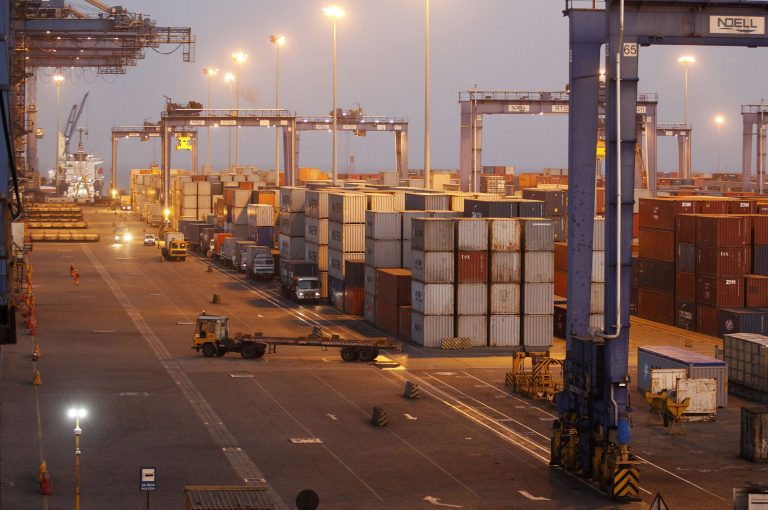On Dec. 1 authorities claimed that a truckers’ strike in South Korea has resulted in $1.2 billion worth of lost shipments and disrupted supply chains.
Governmental actions were taken in an attempt to quell the dissent, but the damage appears to have been done.
Supplies stopped
As the unrest continues, the strike has intensified the disruption of the country’s supply chain, Reuters reported.
Lost shipments from the cement, steel, auto and oil refining industries are said to have cost around 1.6 trillion Korean won (US $1.2 billion) in the seven days since the start of the strike last week, the industry ministry reported on Dec. 1.
The ministry also reported that the lost shipments included 562,600 tonnes of steel, 6,707 cars and 259,238 kilolitres of oil products.
Success
You are now signed up for our newsletter
Success
Check your email to complete sign up
Kumho Tire Co Inc, a tire production company in South Korea, told Reuters that it plans to “cut 15 percent to 40 percent of production output” at its two facilities due to the strike’s effects on shipments.
Due to the blockage of industrial hubs, fresh produce like fish and kimchi are reported to have been discarded, member companies of the Korea International Trade Association (KITA) said.
An official working at the Samsung Electronics’ plant in Gwangju told local news agency Yonhap that exports were stopped, despite raw materials and other shipments moving as usual.
So far, the government’s attempts to negotiate with the truckers have failed following a meeting on Nov. 31 between the government and strike organizer Cargo Truckers Solidarity Union (CTSU) which ended with hostile shouting, two people at the meeting said.
The government has declared that they will not agree to extend a minimum pay system for truckers — set to expire by the end of the year — for another three years.
READ MORE:
- US Congress Backs Legislation to Block Rail Strike
- South Korea’s Yoon Warns of Unprecedented Response to North Korea Nuclear Test, Calls on China to do More
- South Korea Steps up Monitoring in Crowded Subways After Halloween Crush
Truckers against minimum pay
The trouble started on Nov. 24 when unionized truckers launched a second major strike which prompted many to warn of supply disruptions. An earlier strike happened in June, which ended with the government’s agreement to extend the aforementioned minimum pay system, known as the “Safe Freight Rate.”
The truckers called on the government to make the system permanent, in addition to more benefits for truckers in other industries.
Though the government originally promised to expand the system for three years, they did not agree to the other demands by the union. The proposed extension, however, was not satisfactory for the truckers, al-Jazeera wrote.
The government attempted to negotiate with the striking truckers’ union on Nov. 28, but it ended without any resolution.
On Nov. 29, the government ordered cement truck drivers to return to work, threatening to strip them of their licenses should they refuse to give in, as well as slapping them with fines of up to 30 million won (US $22,500) or up to three years in prison, Nikkei Asia reported.
“It is the government and parliament that should return to work… The government and ruling party must immediately withdraw the start-work order, which took the basic rights of cargo workers hostage, and engage in sincere dialogue,” the CTSU said.







